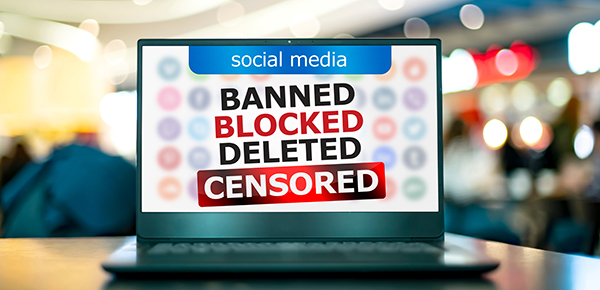
On July 16, Friday, the U.S. Appeals Court for the Second Circuit in New York agreed to review a lower court’s ruling that Section 230 of the 1996 Communications Decency Act (CDA) protected video-sharing platform Vimeo, and by extension other tech companies, from civil rights liabilities in censorship cases.
Appeals court to review ruling on Section 230 in Domen v. Vimeo case
The case of Domen v. Vimeo came after the latter, an online video-hosting and sharing company, terminated the streaming activities of Church United after it featured videos of people who claimed to have left the gay lifestyle to pursue their Christian faith. The company claimed that the videos violated its terms of service, which bar streaming videos that promote sexual orientation change therapy.
In a prior ruling, a federal district court held that Section 230 exempted firms like Vimeo from civil liability, with a three-judge panel of the Second Circuit upholding the ruling.
But the July 16 decision means that the panel's ruling will be reheard before the entire Second Circuit, which covers six federal district courts in three states, including Connecticut, New York and Vermont.
"This ruling puts Section 230 immunity in the crosshairs of judicial review. We suspect that the en banc court recognizes that Big Tech is not exempt from state and federal civil rights laws," said Robert Tyler, whose law firm, Tyler & Bursch, represents Church United and its leader Jim Domen.
"Section 230 was not intended to give Big Tech the right to exclude persons from their platform just because the customer is black, Muslim, white, Christian, homosexual, or formerly homosexual. That is plain invidious discrimination."
In a statement made public on the same day as the court's decisions, Tyler's firm claimed that the court's decision "is even more remarkable given the Second Circuit’s notable reputation for shunning rehearings." It cited an August 2016 article in the New York Law Journal that pointed out that the Second Circuit court had granted fewer rehearing petitions than any other federal appeals court since 1979.
Big Tech's use of Section 230 goes against CDA's intent
Appealing for a rehearing by the Second Circuit, Church United and its representatives argued that the lower courts' rulings allow for discrimination, in contrast to the intent of the CDA. (Related: Section 230 does not protect Big Tech from state anti-censorship laws.)
"The outcome of this case will determine whether websites have blanket immunity to discriminate against customers, including outright banning customers from their website based on race, sexual orientation, religion and other protected classes," reads the appeal.
Section 230 of the 1996 Communications Decency Act states that an "interactive computer service" can't be treated as a publisher or speaker of third-party content. This protects websites from lawsuits if a user posts something illegal, though exceptions exist for copyright violations, sex work-related material and violations of federal criminal law.
The law was crafted by Sen. Ron Wyden (D-OR) and then Rep. Chris Cox (R-CA) so that website operators could moderate their sites without having to worry about legal liability. The Electronic Frontier Foundation has called it "the most important law protecting internet speech."
But many conservatives have pointed out Big Tech companies have been misusing Section 230.
"The free ticket for internet platforms to discriminate is erroneously based on the Communications Decency Act," reads Church United's appeal. "The legislature created this immunity to ensure that providers of an interactive computer service would not be treated as publishers of third-party content and therefore liable for the content of others."
"However … applying the CDA to shield websites from liability for banning protected classes of customers based on discriminatory intent goes far beyond both the plain language of the CDA and the legislative purpose," it concludes.
Follow Censorship.news for more on how tech companies have been abusing Section 230 of the CDA.
Sources include:
Please contact us for more information.























